At the inaugural Paris-Boston Women’s Forum, higher education, corporate leaders tackle gender inequality
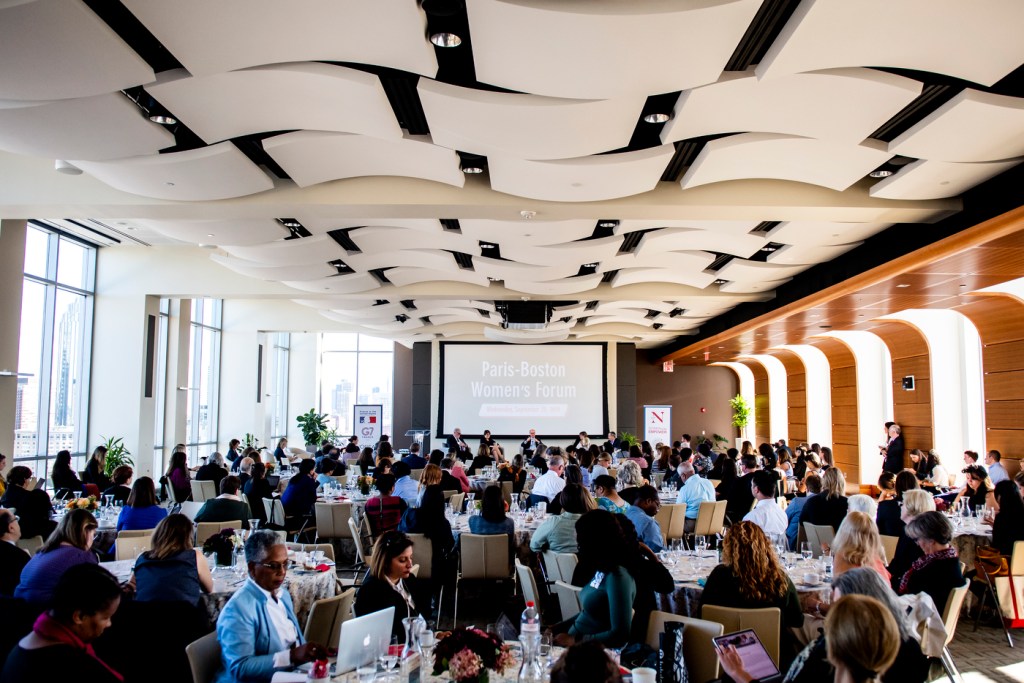
This summer, a consortium of world leaders convened in France for the G7 Summit to tackle challenges related to gender-based inequalities. In a related event his week, more than 100 leaders from universities, nonprofit organizations, and corporations in the United States and France convened at Northeastern University to undertake the same challenge.
The inaugural Paris-Boston Women’s Forum—a project initiated by the Consulate General of France in Boston and held at Northeastern’s East Village—brought together leaders from both cities to work through the systemic challenges women face in higher education and their careers.
“We have a lot of work to do when it comes to gender inequality,” Northeastern President Joseph E. Aoun said in the opening remarks to the forum. “We’re here to share with each other what has worked, what could have worked, and what didn’t work. No institution is self-sufficient; we’re here because we’re seeking to establish partnerships that could help the issues of gender inequality.”
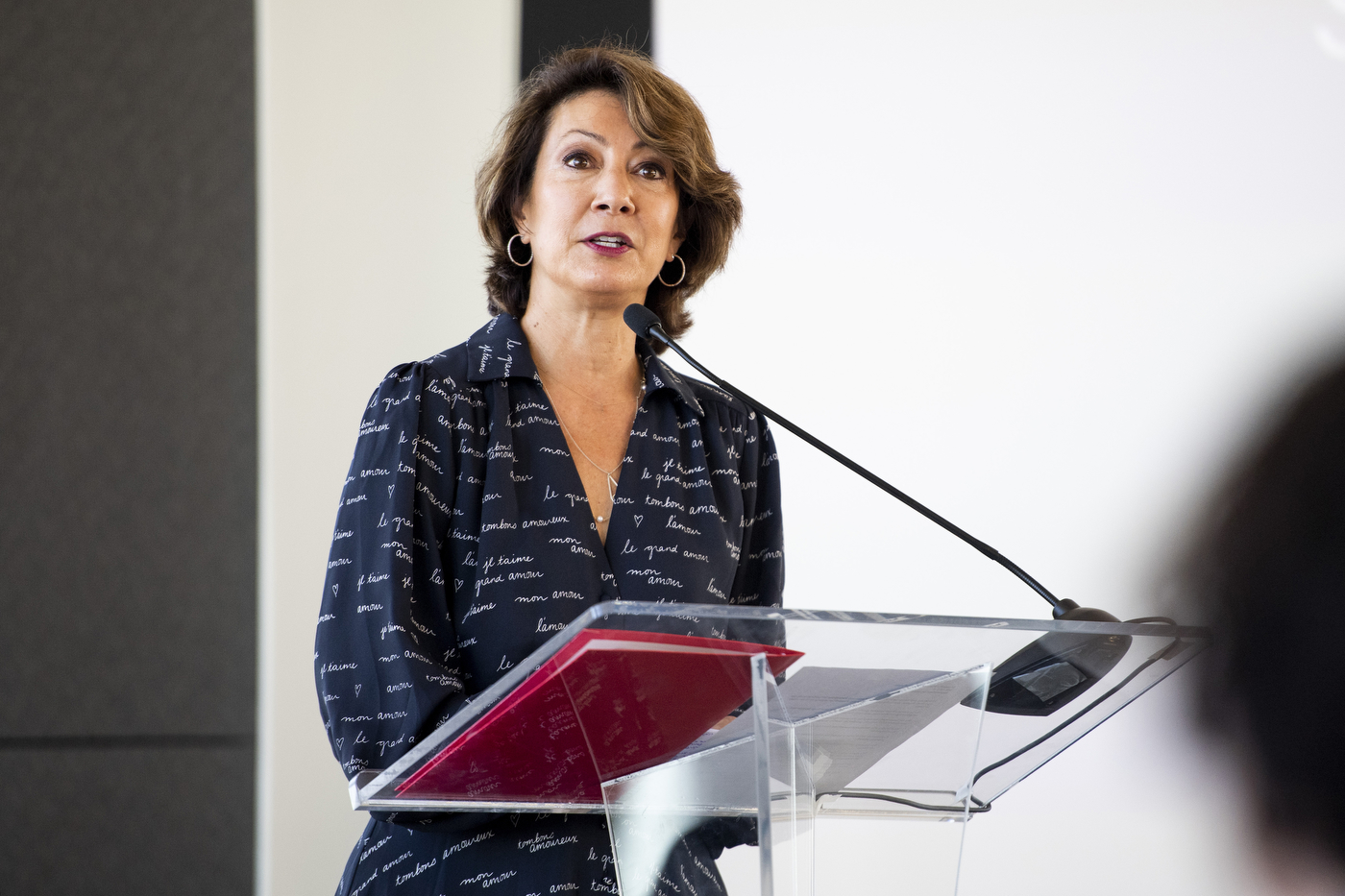
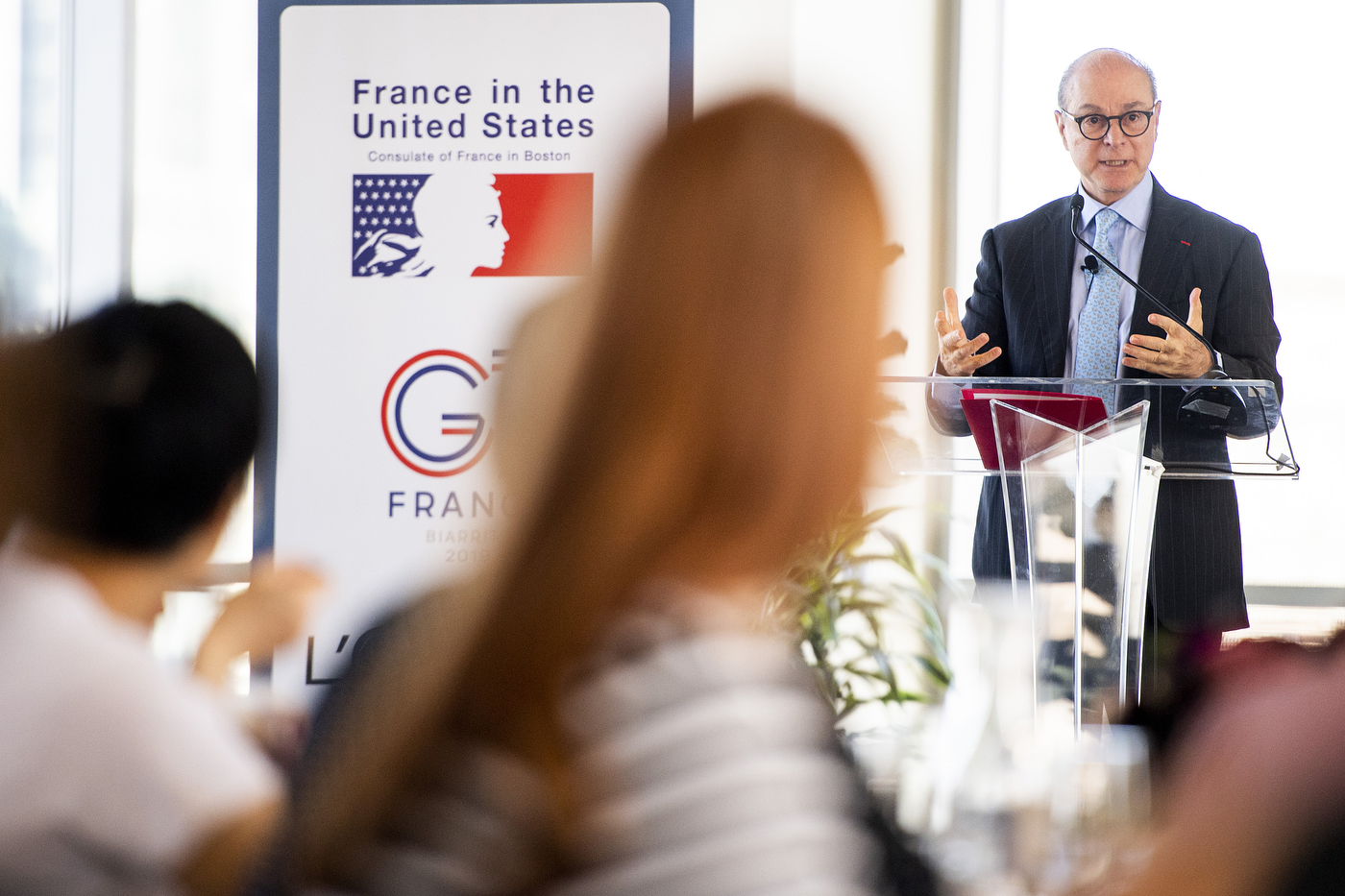
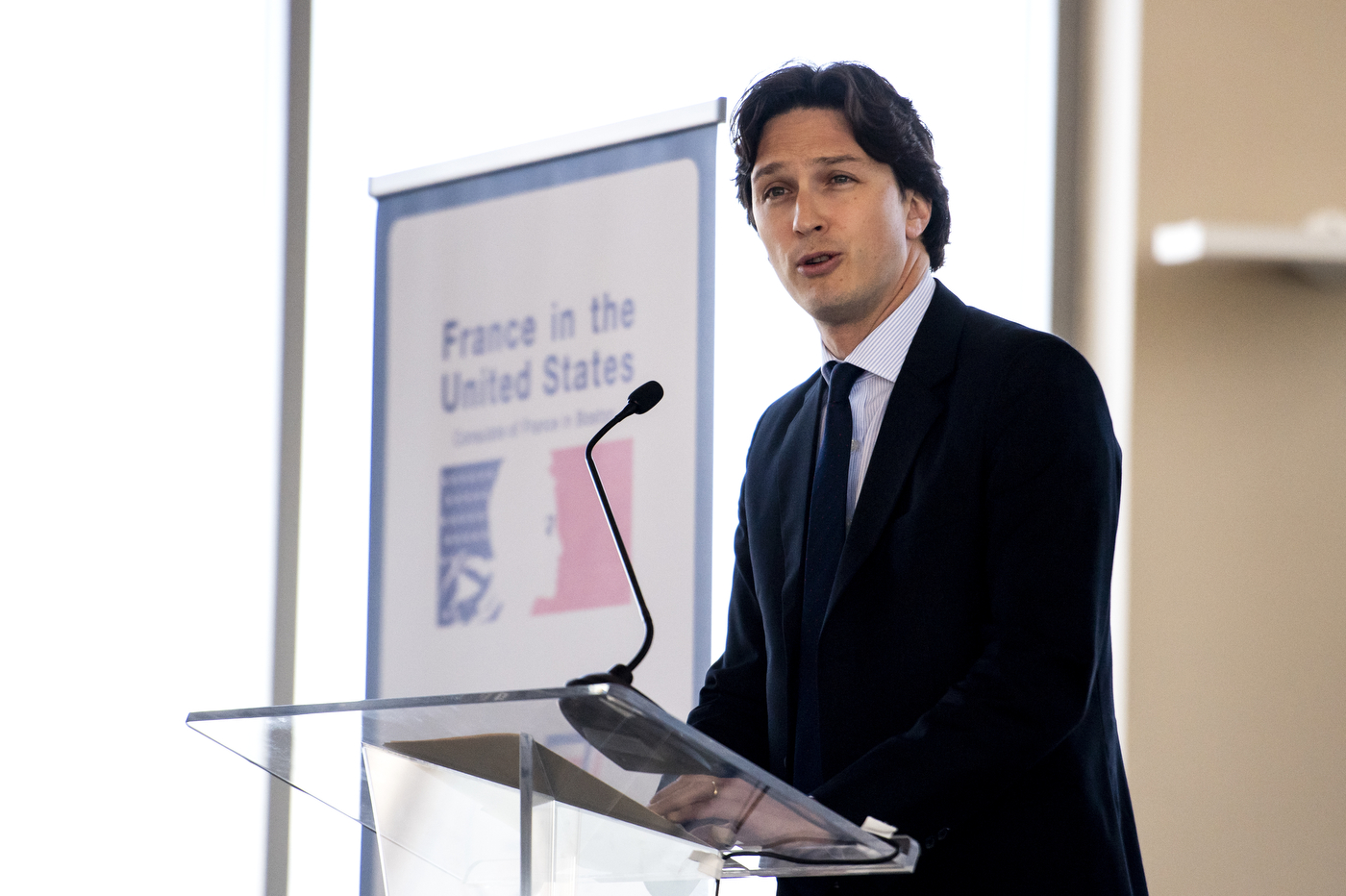
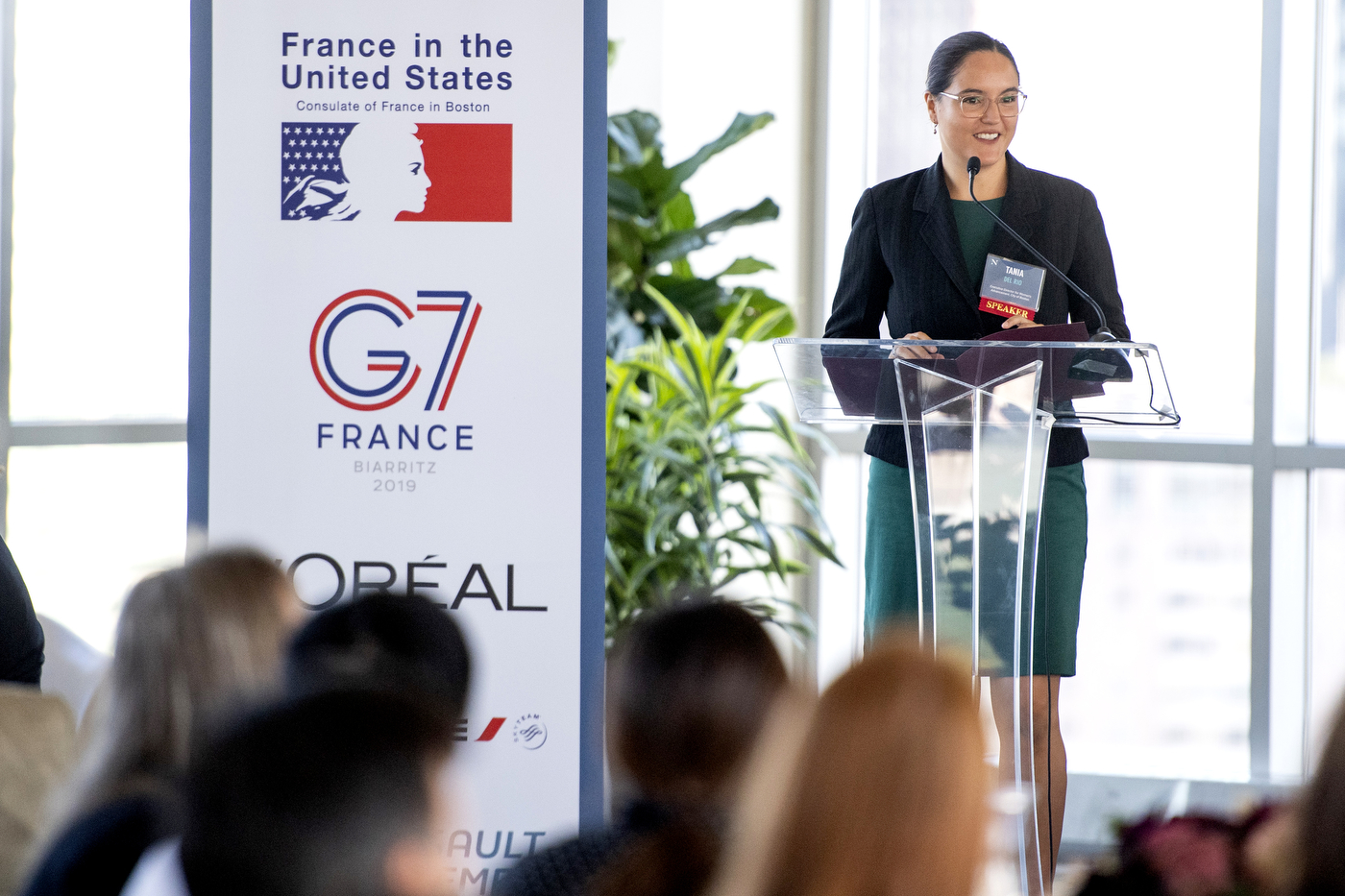
Throughout the daylong forum, which was held on the 17th floor of Northeastern’s East Village on Wednesday, Aoun and other university presidents from across France and the U.S discussed the ways they’ve addressed the particular challenges for women who are faculty and administrators looking to advance their careers; leaders in science, technology, engineering, and math fields in universities and private corporations sought solutions to the underrepresentation of women in science.
“Gender inequality is a global challenge, and many important fora have been held to address it,” said Arnaud Mentré, the Consul General of France in Boston. “There have been relatively fewer that focus on gender inequality issues in universities. That’s why we’re bringing together the leaders in Boston and Paris—two cities that are norm-setters in higher education—to determine the best practices for eliminating gender inequality.”
Public officials, entrepreneurs, and university leaders also discussed the specific roadblocks for women in public affairs and business.
In the U.S., women comprise roughly 7 percent of the CEOs of Fortune 500 companies; 33 percent of university presidents; and 20 percent of computer science employees.
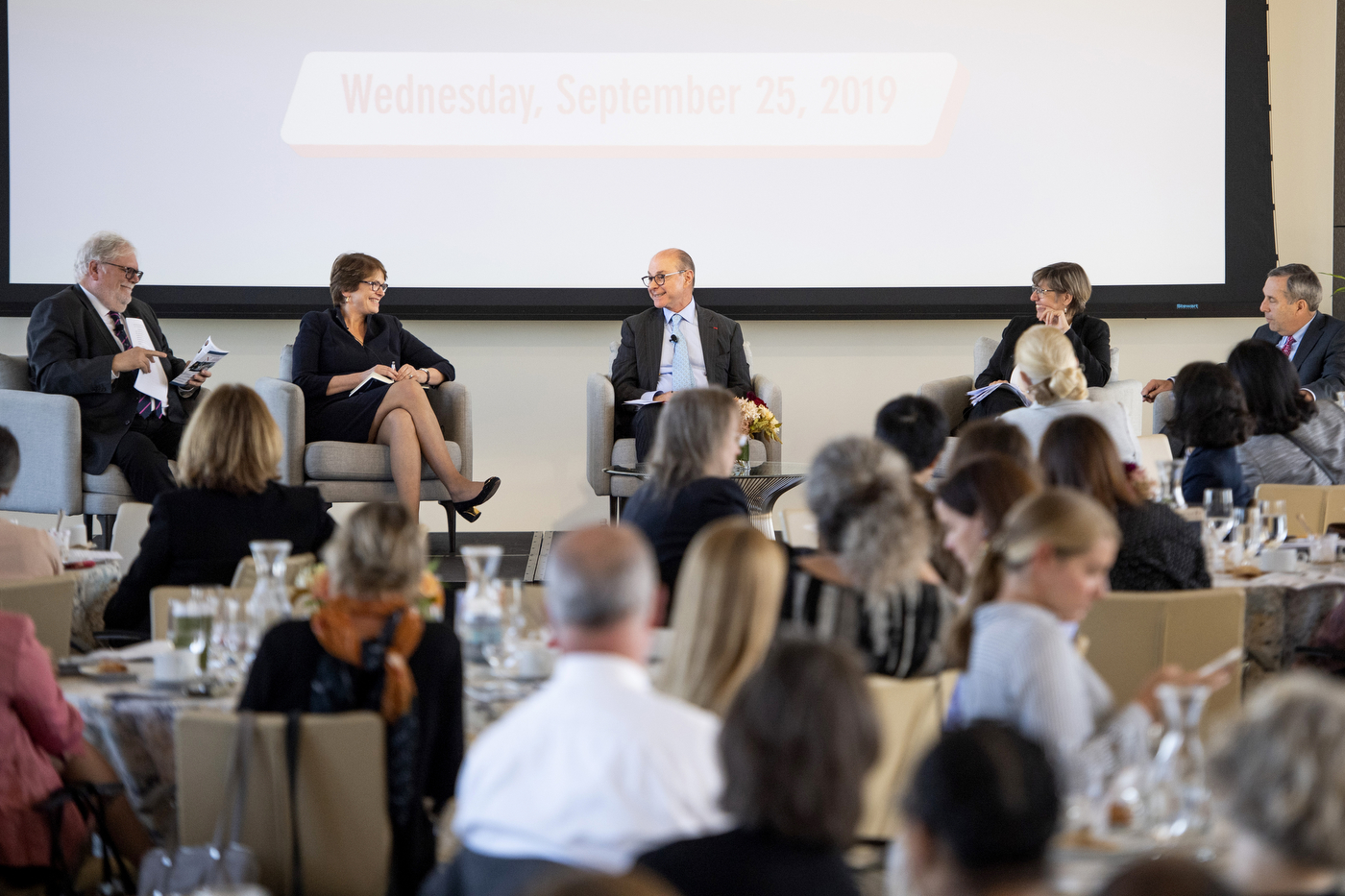
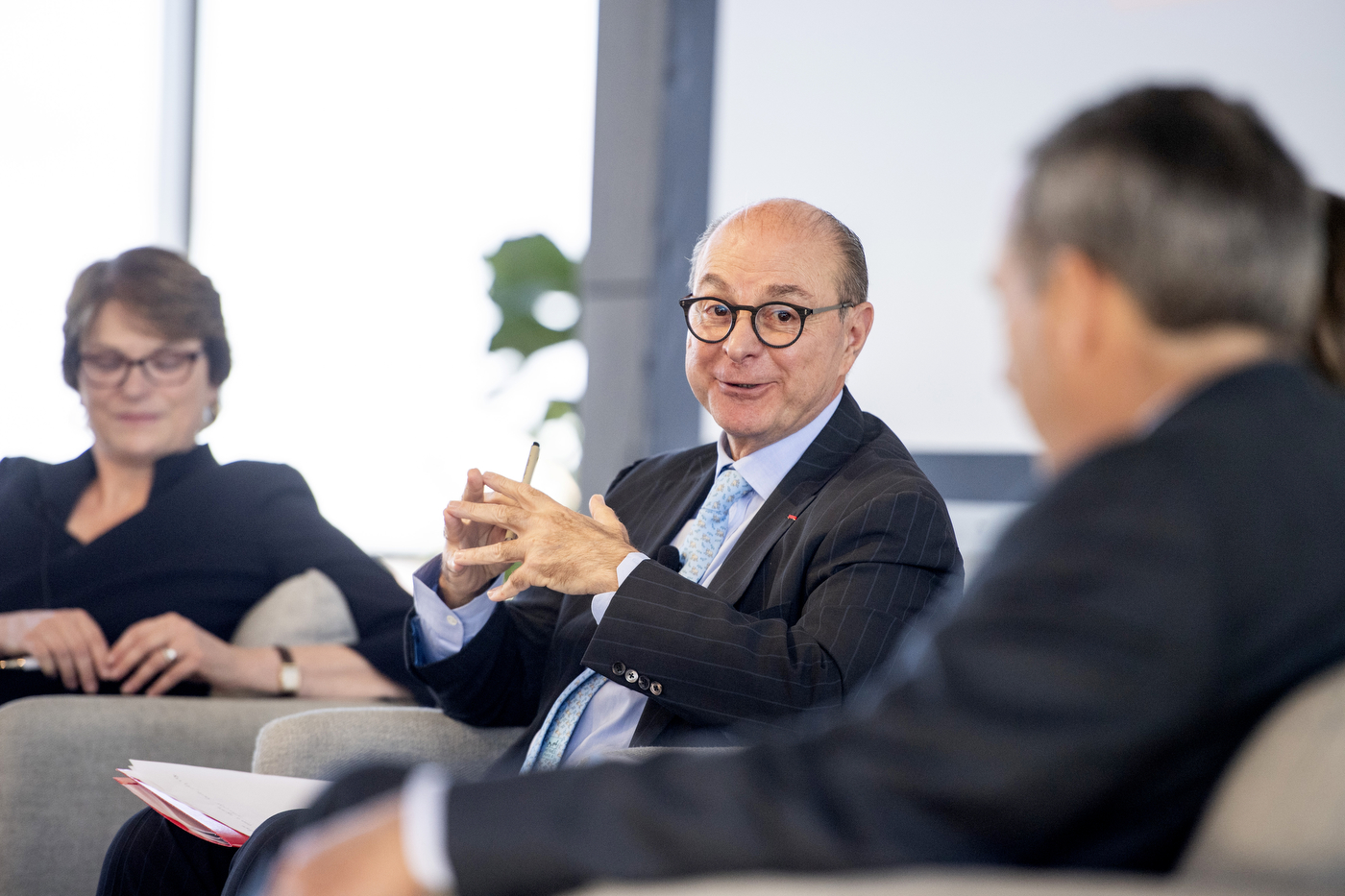
The forum had 10 overall goals, each of which was designed to eliminate barriers for women trying to advance their careers, women who face sexual harassment, and women in traditionally male-dominated fields. The goals include implementing exchange programs between U.S. and French universities that are designed specifically for highly skilled female professors; expanding the number of leading male university administrators and professors wishing to champion gender equality; and developing joint skill development programs on negotiation, job interviews, networking and entrepreneurship; among others.
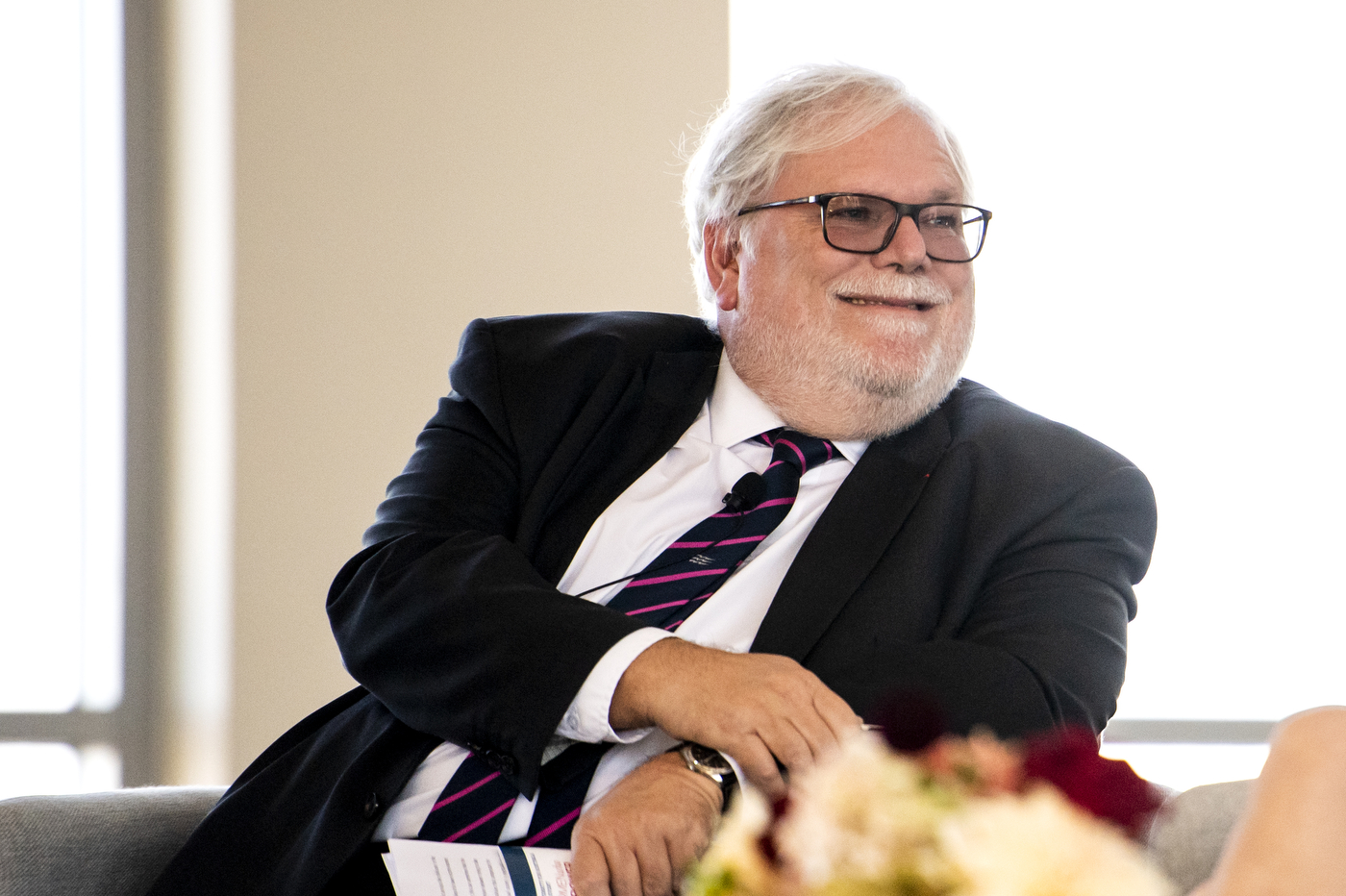
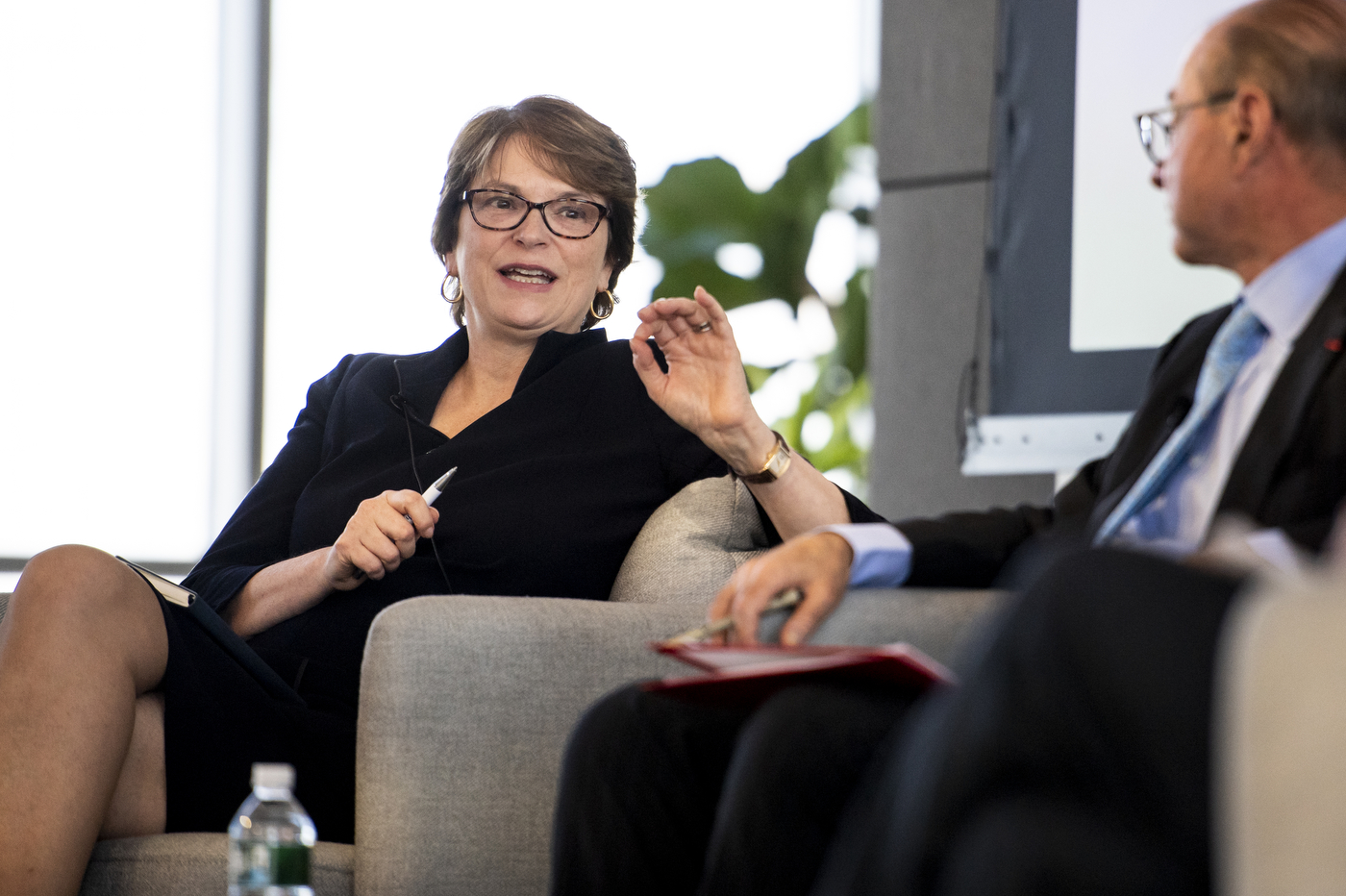
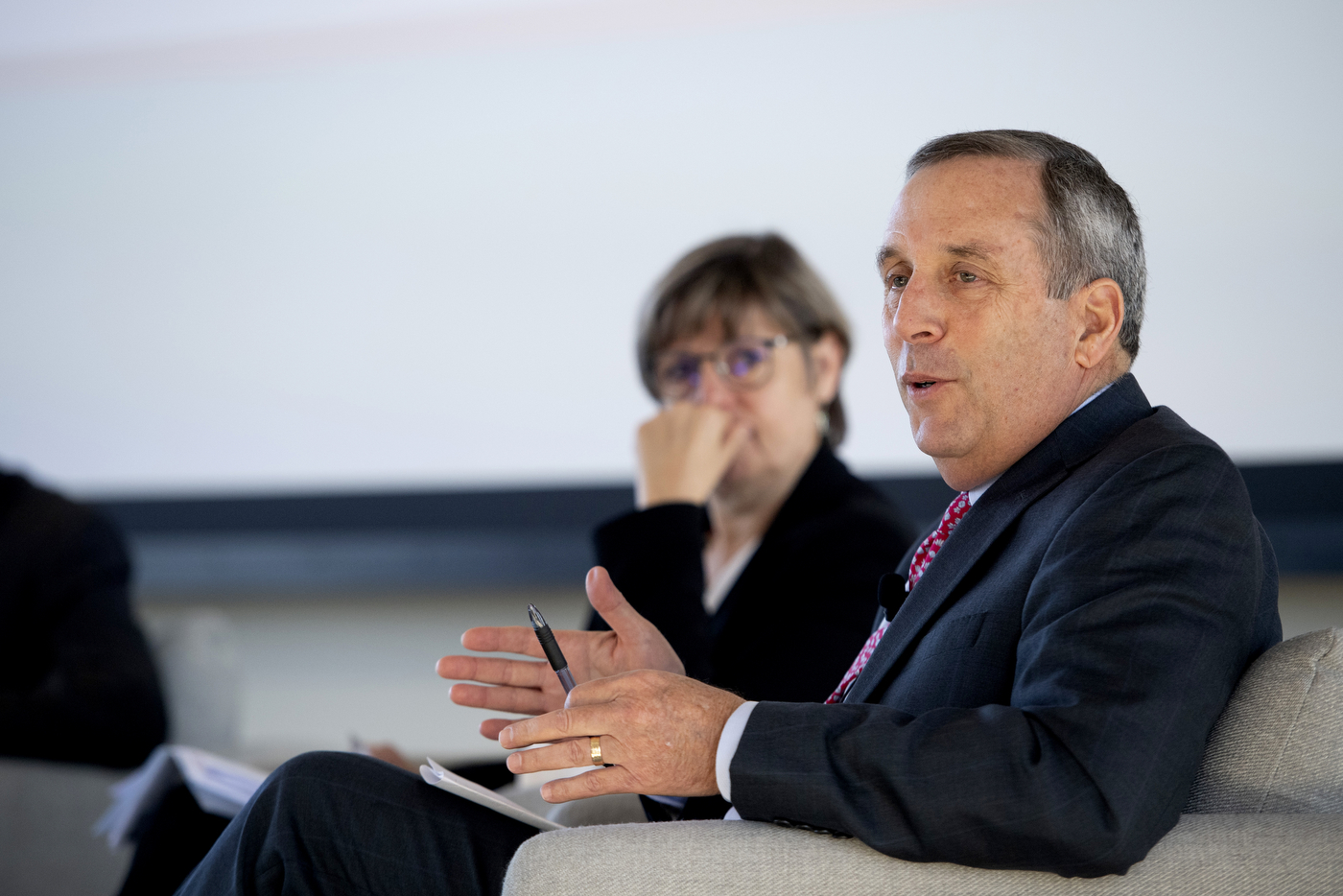
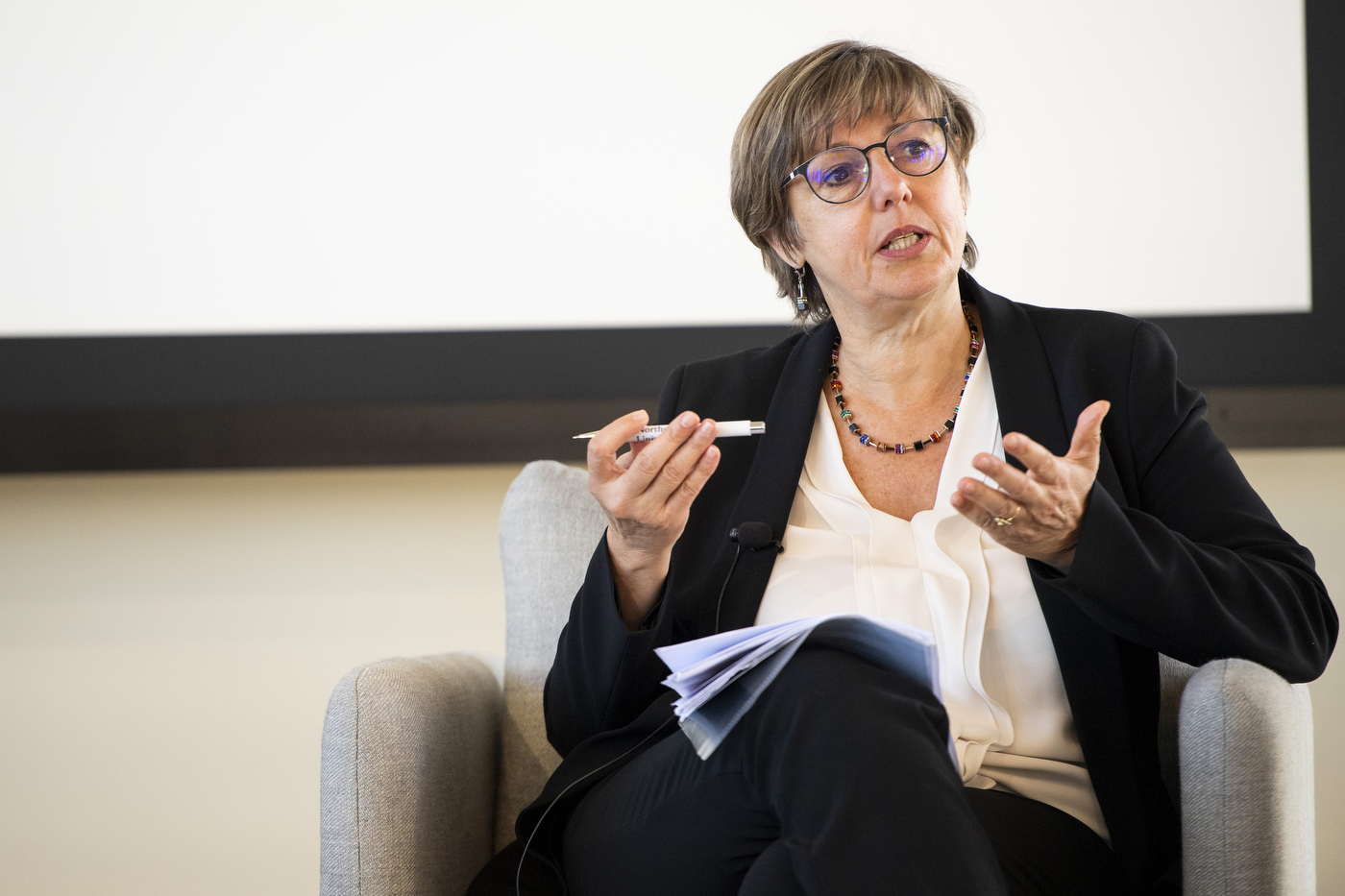
Aoun hosted a panel of his colleagues—presidents from Paris Sciences et Lettres, University of Paris-Saclay, Brown University, and Harvard University—who each attested to the ways women in higher education have suffered from bias that is ingrained in societies and discussed possible solutions for the problem.
“In my experience, the unconscious bias against us as women is a fact,” said Sylvie Retailleau, president of the University of Paris-Saclay. “Being elected [university] president doesn’t give me the automatic authority that it would for a male colleague.”
Aoun noted the ways that Northeastern is challenging these unconscious biases. Six of the nine college deans at the university are women, whose ascension to the role also makes them role models for students considering their own paths, he said. The university’s commitment to experiential education, including its global co-op program in which students work in their chosen field for six months at a time, offers an opportunity for young people to experience different perspectives of gender inequality. And Northeastern’s lifelong learning programs ensure that women who didn’t participate in typically male-dominated fields such as engineering and computer science have opportunities to learn those skills later.
Two such programs are led by Carla Brodley, dean of the Khoury College of Computer Sciences at Northeastern. In her tenure, Brodley has increased the percentage of incoming undergraduate students who are women from 21 to 31 percent in four years. Khoury offers 34 majors that pair computer science with subjects outside the field, such as English, biology, or business administration—in these combined majors, women comprise 33 percent.
She has expanded the Align program, a master’s program in Computer Science designed specifically for students who don’t have a technical or computing background. By the fall, Align will have grown from 11 to 850 students in six years; 46 percent of new students are women.
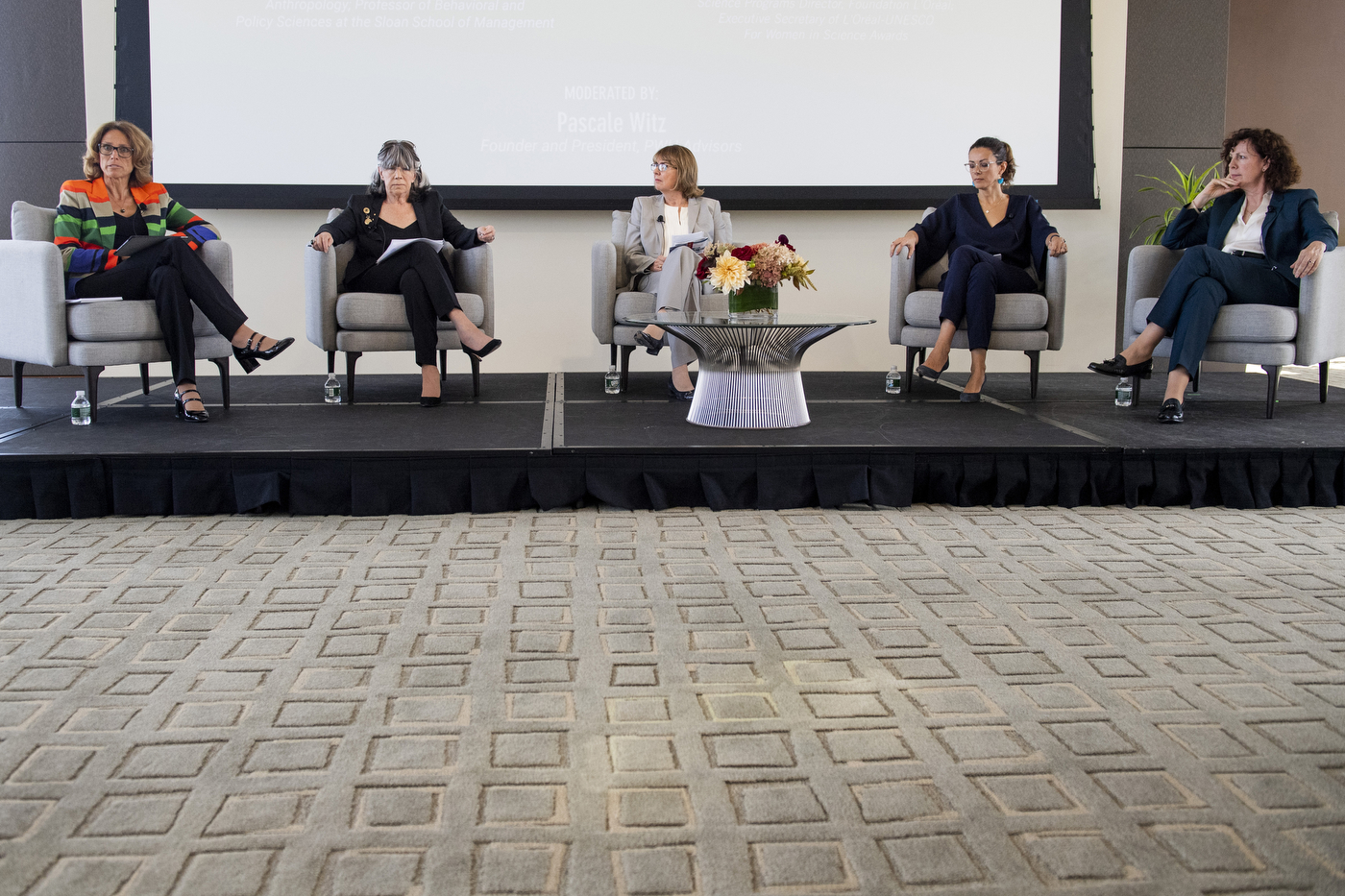
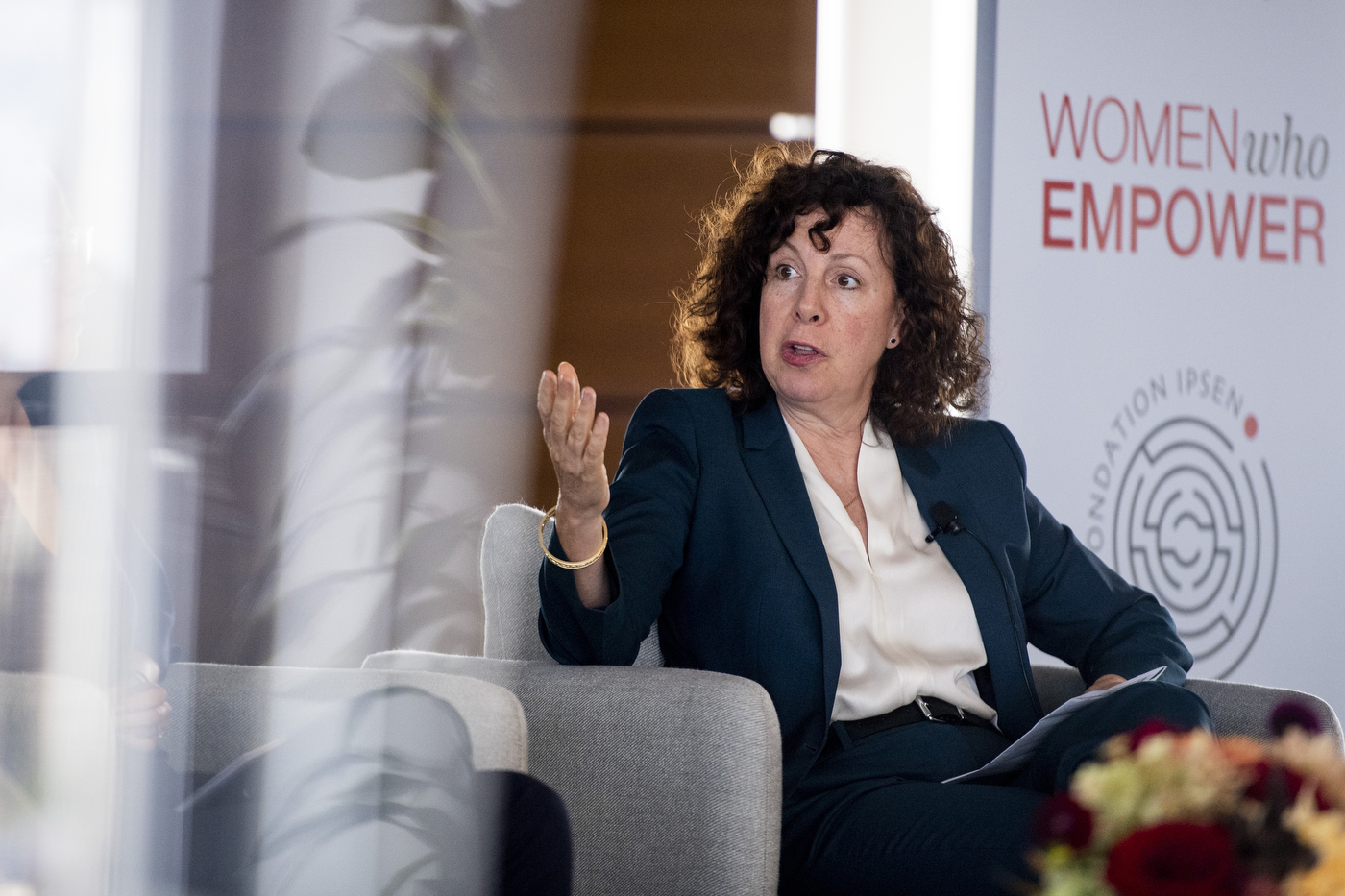
Brodley participated in a discussion with other women in science fields on Wednesday, including the science programs director of Foundation L’Oréal, the founder and president of PWH Advisors, the president of the American Mathematical Society, and the chair of faculty at Massachusetts Institute of Technology.
“Right now, we’re leaving it in the hands of 17-year-olds to decide who goes into tech,” Brodley said, adding that pervasive stereotypes about who goes into tech prevent many young women from considering it. “The programs we’ve been developing here at Northeastern are about creating more pathways to computer science that don’t rely upon a 17-year-old making this decision for themselves.”
In remarks that were delivered by video from France, Frédérique Vidal, the minister of research and higher education for the French government, said, “We can easily notice that women are underrepresented in science,” adding that she’s committed to “bringing the share of women scientists and students” to 40 percent by 2022.
A panel on women in public affairs explored the multiple societal benefits of having more women in leadership roles. Research shows that women have greater awareness and concern about environment issues, and countries with greater representation of women adopt more stringent climate change policies.
Jennie Stephens, the director of Northeastern’s School of Public Policy and Urban Affairs, discussed how gender diversity accelerates social innovation and how Northeastern’s commitment to integrating human literacy, data literacy and technological literacy provides a welcoming innovative learning environment that encourages diversity by breaking down conventional barriers.
Aoun urged those gathered Wednesday to consider goals for the future, as well.
“We’re going to quantify our success on the follow-up,” he said. “What are we going to do next to challenge gender inequality?”
For media inquiries, please contact media@northeastern.edu.





